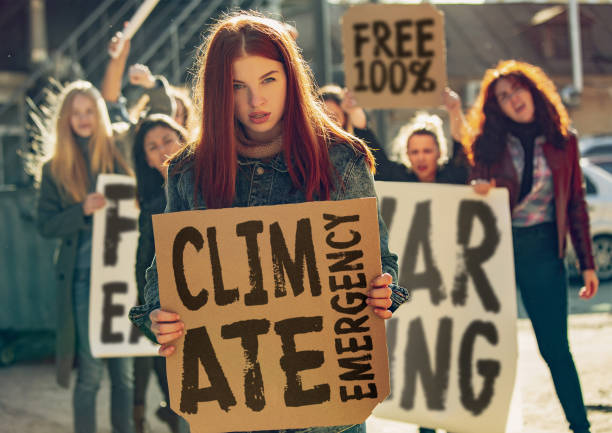Glasgow/New York, November 1 – In his address opening the climate summit in the Scottish city of Glasgow UN Secretary-General Antonio Guterres urged the 197 countries that signed UN Framework Convention on Climate Change to prevent a climate catastrophe. “We face a stark choice: Either we stop it — or it stops us,” he said.
The United Nations’ 26th climate conference, considered the biggest and most important for planet earth, opened negotiations that could last two weeks faced with negative views that it may not succeed in efforts to revert global warming as wealthy nations remain divided about measures to phase out coal and other energy sources responsible for global warming.
“It’s time to say: enough,” he said. “Enough of brutalizing biodiversity. Enough of killing ourselves with carbon. Enough of treating nature like a toilet.
Enough of burning and drilling and mining our way deeper. We are digging our own graves.”
Guterres said the planet is changing “from the ocean depths to mountain tops, from melting glaciers to relentless extreme weather events.
Sea-level rise is double the rate it was 30 years ago.”
The UN chief called recent statements that the world is still on tract to fight climate change an “illusion.” He said published report of Nationally Determined Contributions, which are pledges by countries to implement measures cutting emissions, would still increase global temperature to 2.7 degrees Celsius this century instead of 1.5 degrees as demanded in the Paris climate agreement in 2015.
“So, as we open this much anticipated climate conference, we are still heading for climate disaster,” he said. “Young people know it. Every country sees it.”
Frustration built up after the group of 20 major economies (G20) remained divided about how to implement the Paris 2015 climate agreement, which aims to achieve net zero emissions by 2050 by removing enough greenhouse gases from the atmosphere in order to match any new emissions.
The two-week climate summit opened on October 31 in Glasgow with an ambitious but difficult program of setting up new regulations to implement targets of phasing out fossil fuels burning that are heating up the planet. Known as COP26, which means the 26th annual Conference of the Parties to the UNFCC signed by 197 countries. About 100 heads of state and government and more than 25,000 participants from the UN, non-governmental organizations and civil societies and activists have registered to attend in person. US President Joe Biden, British Prime Minister Boris Johnson, European Union leaders, Guterres and other government leaders were to address the summit.
See climate summit’s schedule of meetings: https://unfccc.int/conference/glasgow-climate-change-conference-october-november-2021
A main goal of fighting climate change was set at the climate conference in Paris in 2015, which demanded that countries implement climate mitigating measures and adapt to climate technology to prevent the average global temperature from rising above 1.5 degrees Celsius. But studies showed that global warming will continue with deadly heat waves, flooding, wildfire, drought and the collapse of the ecosystems.
Climate action requires also that wealthy countries allocate $100 billion a year to developing and vulnerable countries so they can adapt to green technology and cope with climate disasters that they are not responsible for. But wealthy countries have not yet met the needed financial goal.
The UN Environment Program said in a new Emissions Gap Report before the Glasgow conference that new and updated commitments to mitigate climate change were a positive step forward. But it said however that the world remains on track for a dangerous global temperature rise of at least 2.7 degrees Celsius this century even if climate action is implemented.
The report said the efforts remained insufficient and the world needs a 55 per cent reduction to limit global temperature increase below 1.5°C, the capstone defined by scientists as the less risky scenery for our planet and humanity’s future.
See full report here: https://bit.ly/2ZhNuUT
Executive summary: https://bit.ly/3GloOfd
The report showed that updated Nationally Determined Contributions (NDCs), which are pledges by each country to reduce national emissions, as well as other commitments made for 2030 but not yet officially submitted – would only lead to an additional 7.5 per cent reduction in annual greenhouse emissions in 2030, compared to previous commitments.
The UN Development Program and the University of Oxford issued also a new survey called the G20 Peoples’ Climate Vote that showed the crucial importance of how young people support climate action in the G20, which is a group of the world’s wealthiest nations. Climate action by the G20 would have a huge impact on mitigating climate change because the group accounts for 80 per cent of the global economy and 75 per cent of global emissions.
See full report: https://bit.ly/3GixZNt
“This new Peoples’ Climate Vote shows that, on average, 70 per cent of young people in G20 countries believe that we are in a global climate emergency,” said UNDP Administrator Achim Steiner.
“Given that they are about to inherit this climate emergency, young people are sending a message to global leaders that is loud and clear: they want climate action now. The world is now watching – hoping that countries will come together at COP26 in Glasgow to make bold, historic decisions that will literally change the future.”
The most popular climate policies among under-18s in the G20 countries surveyed were conservation of forests and land (59%), using solar, wind and renewable power and using climate friendly farming techniques (both 57%). Support for these policies was stronger among young people by three percentage points for the first two policies, and by four percentage points for climate-friendly farming.
The survey polled over 689,000 people, including over 300,000 under 18 years old. Youths at are particularly aware of climate dangers as they are entering the workforce and becoming voters, which put them in positions of greater influence.
United Nations correspondent journalists – United Nations correspondent journalists – United Nations correspondent journalists
United Nations journalism articles – United Nations journalism articles – United Nations journalism articles

